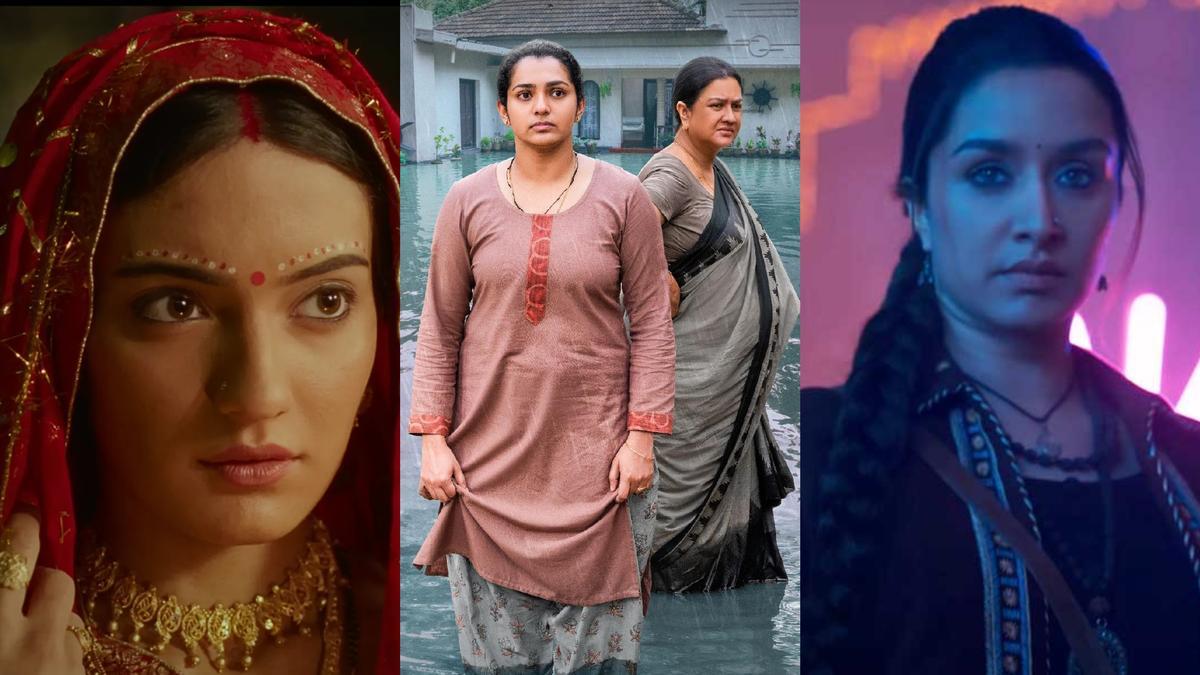
It has been an agonizing August for Indian women, filled with both heartbreak and triumph. The month began on a tragic note when a medical student was brutally silenced in Kolkata, igniting nationwide outrage encapsulated in the cry, “beti padhi par bachi nahin” (the daughter studied but could not survive). Adding to the distress, a champion wrestler was fat-shamed by a woman Member of Parliament from the film industry for missing her weight category by a mere 100 grams.
Yet, amidst these harrowing incidents, the screen provided a contrasting narrative of resilience and strength. The month offered a glimmer of hope as films showcasing women standing up against injustice came to the fore. This societal shift was epitomized by the Malayalam drama “Aattam” (The Play), which clinched an award at the prestigious National Awards. Directed by debutant Anand Ekarshi, the film unveils the hidden hostilities that women face even in seemingly safe environments like theater and cinema. It lays bare the hypocrisy of men who practice gender sensitivity only when it suits their interests.
The award announcement came just days before the Kerala government finally released the long-awaited Justice Hema Committee report. Submitted four-and-a-half years ago, the report exposes the dark side of the Malayalam film industry, revealing widespread harassment and discrimination faced by women at the hands of a powerful lobby of male producers, directors, and actors. Although the Kerala government took an inordinately long time to make the report public, it marks the first instance of an Indian government forming a panel to study issues faced by women in the film industry. The revelations are not confined to Kerala; similar issues resonate across India, where Bollywood actors have often spoken about gender discrimination and the notorious casting couch, only for their complaints to be swept under the rug.
Interestingly, the report gained public attention when Christo Tomy’s film “Ullozhukku” (Undercurrent) was making waves on a streaming platform and at the Kerala State Awards. Set in an inundated village where floodwaters symbolize emotional turmoil, the film explores the deep connections between women. Featuring stellar performances by Urvashi and Parvathy, “Ullozhukku” delves into the complex relationship between a mother-in-law and her daughter-in-law after the man connecting their lives succumbs to cancer.
. Director Tomy sensitively examines who controls a woman’s body before and after marriage, while also shedding light on the Christian community’s struggles with sectarianism and patriarchy in Kerala.
Taking this conversation further, Kiran Rao’s “Laapataa Ladies” was recently screened for Supreme Court judges. Like “Ullozhukku,” this film also tackles the rigid rules imposed on women, though with a lighter touch. Rao uncovers the veiled patriarchy that invisibilizes women. When the determined Jaya finds an opening in this iron curtain, she escapes like a sprout emerging from a crack in the rock of tradition. In contrast, the naive Phool, married into a patriarchal system in the name of culture, hides behind a dustbin labeled ‘use me’ when abandoned on a railway platform. The metaphor is employed with striking effectiveness in Nithilan Swaminathan’s “Maharaja,” where a father, searching for his missing daughter, uses a dustbin to illustrate his plight to the police. Both films reveal that going to the police station can be more harrowing than being robbed, and in both narratives, the protagonist must bribe the police to initiate any action.
While opinions may vary on the depiction of violence in these films, they consistently highlight how women refuse to let these acts stall their ambitions. This sentiment is echoed powerfully in Nikkhil Advani’s “Vedaa,” where a Dalit girl remains undeterred by the self-appointed guardians of caste and morality. Despite featuring male saviors, the determination of these women doesn’t feel like an afterthought.
In contrast to these real-life monsters disguised as humans, Amar Kaushik’s sharp satire “Stree 2” deals with supernatural demons rising to perpetuate patriarchy by preying on progressive women. Pankaj Tripathi’s character explains in impeccable Hindi that the length of a woman’s braid doesn’t matter because even short-haired women can stop the male chauvinist in his tracks. This brings to mind a remark made by a late socialist leader regarding short-haired women in the context of the Women’s Reservation Bill back in 1997.
Through a mixture of cinematic accomplishments and real-life tragedies, August has been a month of both anguish and hope for Indian women, reflecting their ongoing struggle and resilience in the face of adversity.












